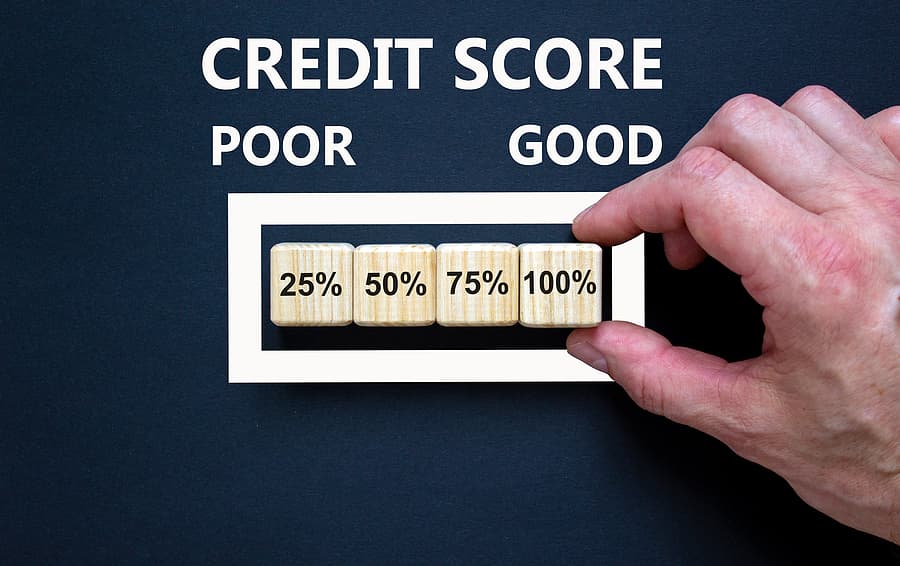Debt consolidation combines multiple debts into one single loan, typically resulting in a lower interest rate and lower monthly payment. The resulting lower monthly payment frees up cash for day-to-day living expenses while alleviating stress and reducing the need to rely further upon credit cards and other forms of debt. A debt consolidation loan (DCL) provides the added benefit of streamlining the repayment process while simultaneously lowering interest expense and the total amount repaid over time. Since interest rates on debt consolidation loans frequently are lower than those attached to credit cards, for individuals carrying multiple cards with multiple payment dates, utilizing a DCL to simplify the repayment process can make a lot of sense.
That’s the good news. But, have you ever wondered how debt consolidation loans affect your credit? Does debt consolidation hurt your credit score? Learn how to best approach debt consolidation without hurting your credit score in the process.
Do Debt Consolidation Loans Hurt Your Credit?
Does debt consolidation hurt your credit? The short answer is that it usually doesn’t have to over the long-term, although sometimes it will. In the short-term, applying for a debt consolidation loan (DCL) will result in a hard-pull on a credit file, resulting in a temporary impact to a FICO credit score. In a typical DCL scenario, the borrower obtains funds that can be immediately deployed to pay off a variety of pre-existing unsecured debt balances. The purpose of the DCL is to save money since the new loan should only be taken if it comes with a lower blended interest rate that is attached to the pre-existing debts it is consolidating.
Common types of DCLs include:
- Personal loans
- Promotional low-interest rate balance transfers on credit cards
- Home equity loans
DCLs are popular for the convenience and debt savings that they provide, and taking out a DCL will not in and of itself hurt your credit score. However, it should be noted that any time an individual applies for credit, an application typically triggers a hard inquiry that will result in a modest and temporary reduction to a credit score. As long as the applicant does not bundle several applications for credit within a short period of time, the temporary credit score reduction will reverse within a few months or less.
So, when does a debt consolidation loan hurt your credit score?
Well, since taking out a DCL means taking out more debt, it becomes vitally important to truly utilize all funds generated through a DCL to only pay off pre-existing debt. If any of the proceeds of a DCL are used for extra spending or even for day-to-day survival expenses, this can turn into trouble. It is crucial for the borrower to adjust spending behavior away from the bad habits that led to accumulating debt in the first place – otherwise the DCL will not work. Instead, the debt pile actually grows larger, while the responsibility of making timely repayments on the debt remains. Any late payments, delinquencies, and defaults that result from an ever-growing pile of debt will inevitably damage a credit score. However, making consistent timely repayments on a debt consolidation loan will build a favorable track record that will ultimately strengthen a credit score and profile – not weaken them. Plus, when a DCL wipes away pre-existing credit card debt, the borrower’s credit utilization ratio (the percentage of total available credit actually borrowed) will diminish, and this elevates a credit score.
How Do Debt Consolidation Loans Affect Your Credit?
What about another popular form of debt consolidation, the balance transfer – does taking advantage of balance transfer opportunities negatively affect a credit score? A balance transfer credit card allows the individual to consolidate debt by transferring high interest rate credit card debt from an existing credit card account to another credit card account at a lower promotional rate for a specified period of time. In the best of circumstances, the promotional interest rate on the credit card balance transfer will be 0% for as long as twelve to eighteen months. Low interest rate balance transfer offers are highly coveted and generally reserved for those with strong FICO credit scores well into the 700s. And with good reason – they can be a real money saver for as long as they remain in effect. However, it is important to be absolutely clear as to the length of the promotional interest rate period on a balance transfer credit card.
You should realize that following the expiration of this promotional rate period, the interest rate on your balance transfer can climb substantially higher – often to as high as the interest rate for credit card purchases – which can be 20%-25%.
From a credit score impact point of view, keep a close eye again on the credit utilization ratio, as well as the average age of all credit card accounts. A new balance transfer credit card that is quickly maxed out for its interest rate advantages will raise the credit utilization ratio, thereby negatively impacting a credit score. Furthermore, opening a new credit card account will decrease the average age of open accounts, also negatively impacting a credit score. It will therefore make good sense not to close the accounts from which you have transferred balances, as closing these older accounts will further reduce the average age of your accounts and negatively impact your credit score further.
How To Get Debt Consolidation Without Hurting Your Credit Score in The Process?
Talk to a debt specialist at United Debt Settlement who has ample experience helping Americans just like you seek out the very best debt consolidation solutions to their debt problems.
See if you qualify for debt relief through our system now, or get in touch with one of our agents at (888) 574-5454 to learn more about how we can help.

Steven Brachman is the lead content provider for UnitedSettlement.com. A graduate of the University of Michigan with a B.A. in Economics, Steven spent several years as a registered representative in the securities industry before moving on to equity research and trading. He is also an experienced test-prep professional and admissions consultant to aspiring graduate business school students. In his spare time, Steven enjoys writing, reading, travel, music and fantasy sports.












